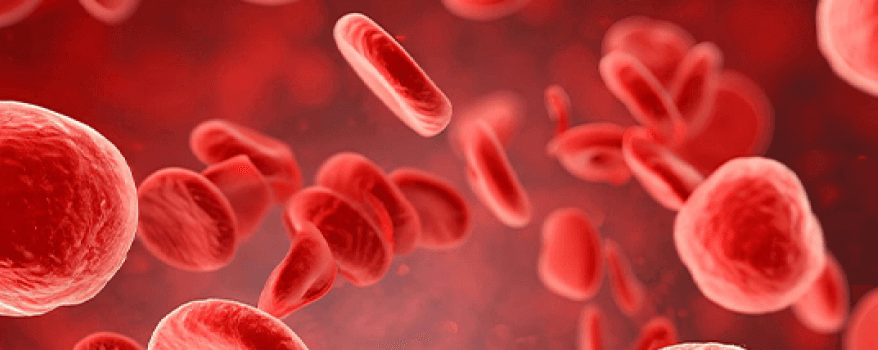
Blood cancer
What is Blood cancer?
Blood cancers disrupt the production and function of blood cells, often originating in the bone marrow where blood cells are formed. Stem cells in the bone marrow mature into three essential types of blood cells: red blood cells, white blood cells, and platelets. However, in blood cancers, this natural development process is hindered by the uncontrolled proliferation of abnormal blood cells. These cancerous cells impede the normal functions of the blood, such as fighting infections or preventing excessive bleeding.
Types of Blood cancer
There are three primary types of blood cancers:
1. Leukaemia: This type of cancer affects the blood and bone marrow, characterized by the rapid production of abnormal white blood cells. These abnormal cells cannot effectively fight infection, and they disrupt the bone marrow's ability to produce red blood cells and platelets.
2. Lymphoma: Lymphoma targets the lymphatic system, which is responsible for removing excess fluids and producing immune cells. Abnormal lymphocytes, a type of white blood cell, transform into lymphoma cells that multiply and accumulate in the lymph nodes and other tissues. Eventually, these cancerous cells compromise the immune system's function.
3. Myeloma: Myeloma is a cancer of the plasma cells, which are white blood cells responsible for producing antibodies to combat diseases and infections. However, myeloma cells disrupt the normal production of antibodies, leaving the immune system weakened and vulnerable to infections.
What are the causes of Blood cancer?
Blood cancers arise from mutations in the DNA of blood cells. Various risk factors contribute to the development of specific types of blood cancers:
For acute myeloid leukaemia (AML), the following factors increase the risk:
- Advancing age
- Male gender
- Exposure to industrial chemicals like benzene
- Smoking
- Previous cancer treatments
- High doses of radiation exposure
- History of other blood cancers
Risk factors for Hodgkin lymphoma include:
- Prior infection with Epstein-Barr virus (EBV), causing infectious mononucleosis (mono)
- Advancing age
- Male gender
- Family history of Hodgkin lymphoma
- Weakened immune system
Non-Hodgkin lymphoma risk factors include:
- Exposure to specific industrial chemicals, herbicides, and insecticides
- History of chemotherapy
- Radiation exposure
- Compromised immune system
- History of autoimmune diseases like rheumatoid arthritis or lupus
Multiple myeloma risk factors comprise:
- Advancing age
- Male gender
- Race (higher risk among African Americans)
- Obesity or excess body weight
What are the risk factors of Blood cancer?
Factors that might elevate the risk of developing certain types of leukaemia include:
- Previous cancer treatment: Individuals who have undergone specific types of chemotherapy or radiation therapy for other cancers have a higher likelihood of developing certain forms of leukaemia.
- Genetic disorders: Certain genetic abnormalities appear to contribute to leukaemia development. Conditions like Down syndrome is associated with an increased leukaemia risk.
- Exposure to certain chemicals: Contact with certain chemicals, such as benzene present in gasoline and utilized in the chemical industry, is linked to a heightened risk of certain leukaemia types.
- Smoking: Cigarette smoking raises the risk of acute myelogenous leukaemia.
- Family history of leukaemia: Having family members diagnosed with leukaemia may elevate the individual's risk of the disease.
However, it's crucial to note that many individuals with known risk factors do not develop leukaemia, and conversely, many individuals with leukaemia have none of these risk factors.
Symptoms of Blood cancer
Typical symptoms of bone marrow and blood cancers may include:
- Fever and chills
- Continuous fatigue and weakness
- Decreased appetite and nausea
- Unexplained weight loss
- Night sweats
- Bone and joint pain
- Abdominal discomfort
- Headaches
- Shortness of breath
- Recurrent infections
- Itchy skin or skin rash
- Enlarged lymph nodes in the neck, underarms, or groin area
When to see a doctor
Schedule a consultation with your healthcare provider if you experience any persistent symptoms that concern you.
Symptoms of blood cancer can be nonspecific and easily overlooked, as they may mimic those of common illnesses like the flu. In some cases, blood cancer is detected incidentally during routine blood tests conducted for other medical reasons. Therefore, it's important to address any persistent symptoms or abnormalities promptly to ensure appropriate evaluation and diagnosis.
FAQS
Health In A Snap, Just One App.
KNOW MORE
